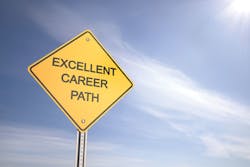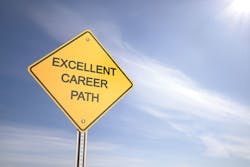A most excellent career: 2015 is almost over; did we deliver the right message for dental hygiene?
By Lory Laughter, RDH
I am not a fan of year-end reflections. I am a huge supporter, though, of professional progress and career enhancement. Therefore, the pesky task of reflection is upon me. There were many opportunities during 2015 to promote dental hygiene. The number of us who took those opportunities is another issue to address. When most of the public still does not understand the role of the RDH, and most believe there is no difference in dental auxiliaries and hygienists, we have a problem.
Social media and blogs are full of dental hygienists promoting ourselves to ourselves. Yet, we don't need to convince our peers of the value a dental hygienist brings to health care. We know of the 3,000 hours of education required to graduate, as well as the tests required for licensure. The Internet and journals are full of choir preaching. Other than the occasional dental hygiene month advertisement and notes during oral cancer awareness month, the public at large is not exposed to many instances of the education acquired by the dental hygienist. I think a large part of the problem in reaching the public is that dental hygienists have a difficult time defining their profession and the positions filled by dental hygienists.
If every RDH had a well-defined career path and the ability to explain their profession in any given moment of query, educating the public would almost take care of itself.
At the RDH Under One Roof conference this year, I took 15 minutes to walk around the exhibit hall and randomly ask attendees how they defined dental hygiene and the direction they would like to see the profession move. Almost universally, the reply was "to provide preventive services (prophy, fluoride, periodontal treatment) to patients in the dental office." As far as a direction for the profession, "midlevel provider" was nearly a unanimous answer.
Yet, when asked what health-care role a midlevel provider would fill, no two answers were the same. It appears baffling that so much energy is focused on something we can't define; yet we are still unable to provide preventive services in every setting.
Why not seek unrestricted practice of current duties before arguing for a new name?
Visibility cannot be overstated in the pursuit of recognition as a health-care professional. Many dental hygienists have offered oral cancer screenings at local health events and others even set up their own community screening. Kyle Isaacs, RDH, BS, of Corvallis, Oregon, took on the huge task of organizing an oral health event in her town.
Kyle told me, "My intentions were to help the community at large by utilizing local health professionals as volunteers ... the RDHs did oral screenings and took blood pressure."
Debbie Sabatini, RDH, joined the effort and taught the volunteers the proper technique for the exams during CE the night before and throughout the event. But this went beyond providing a service for the public.
In Kyle's words, "We also had two nurses showing people how to do thorough breast exams, a health navigator, and a face painter for kids." Kyle created a chance for interprofessional collaboration-another great way to highlight the dental hygienist. Those two nurses now know a vital role the RDH plays in early detection. Our profession can benefit from Kyle's example.
In my opinion, for dental hygiene to progress as a profession, the focus outside the clinical setting needs to be more common. This does not downplay the very important care clinical dental hygienists provide. Decreasing oral inflammation and educating patients on subjects from plaque removal to the oral/systemic link is vital to health.
Even so, no profession survives and expands based on one role or one setting. Dental hygiene needs educators, researchers, public advocates, and published scholars. Pointing to a body of research specific to our career shows a strong profession rooted in education and respected among peers and the scientific community. These roles may require an advanced degree-another positive for the profession.
When dental hygienists are recognized as holding bachelor's, master's, and even doctorate degrees, their status in the eyes of the public and other professionals increases. Imagine the change in legislative proceedings when one can point to Dr. Iknowmystuff as the RDH speaking on behalf of dental hygienists. Right now, organized dentistry has a hold on auxiliaries because we are not viewed as equals. They are doctors, and we are staff. An equal educational footing will change that unfortunate perception.
Don't wait for the start of another week, month, or year to begin promoting your profession to the public, other health-care professionals, and government representatives. It's easy to volunteer in your community and use it as an opportunity to support dental hygiene. It could be as simple as wearing a shirt with an RDH theme, and answering questions that are sure to come your way. Seek out health fairs and volunteer to perform oral cancer screenings, attend a sealant clinic, or offer to present to a local school. Learn how to set up your own screening clinic or health fair. Share this radio blog with your legislative representatives and local officials:crosslinkradio.com/mediacast/registered-dental-hygienist-in-all-settings/.
The time is now for enhancing your career and bringing progress to the profession. Our profession needs the public to understand our important role and speak up for preventive services in all settings. Educating your neighbor could be more important than discussions among colleagues. We are essential to the health of our planet-let's stop hiding or downplaying that fact. I vote to end reflecting and encourage action now! RDH
Lory Laughter, RDH, BS, MS, practices clinically in Napa, Calif. She is owner of Dental IQ, a business responsible for the Annual Napa Dental Experience. Lory combines her love for travel with speaking nationally on a variety of topics. She is also a part-time educator or consultant for American Eagle, Livionex, and Nuvora. She can be contacted at [email protected].

